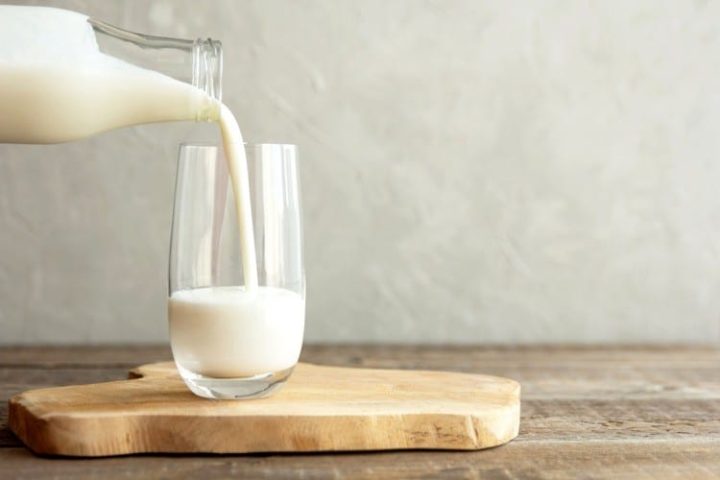
Police in Wales dispersed a small group of families waiting to buy farm-fresh milk from vending machines for allegedly violating coronavirus restrictions, saying they should have bought what they needed at a supermarket closer to home.
On January 18, police confronted customers who were lined up at an open-air vending-machine shed on the Mynydd Mostyn dairy farm near Holywell, North Wales. The shed, which has been doing booming business since it opened on January 1, is operated by dairy farmers Einion and Elliw Jones, parents of four children. According to the Daily Post, the “shed contains three cashless vending machines offering bottled milk, milkshakes, coffee and hot chocolate,” along with a fourth machine selling “local food products such as eggs, cheese and preserves.”
“Signs have been installed asking customers to maintain at least a 2m[eter] distance, wear masks and use hand sanitizer provided,” reported Farmers Weekly. “They have also set up an in-car queuing system.”
Nevertheless, police ordered the customers to leave, threatening them with fines for noncompliance.
“Afterwards we received several complaints from local customers about their treatment,” Elliw told the Post. “So we watched the incident back on CCTV and saw that an officer cleared the area within six minutes.”
She said there were “at least five households at the site, possibly more.”
Among them were “a mother looking to buy milk for her lactose-intolerant child”; “a customer from nearby Trelawnydd, which lacks its own shop”; and “a mum-of-three from Mostyn, which does have its own shop — but which doesn’t supply the full fat (blue) milk she needs for her son,” reported the Post.
“The police said that if I wasn’t out on my daily exercise then I would have to leave or I would receive [an $82] fine,” she told the paper. “I was very angry at the situation but I left because I didn’t want the fine.”
This wasn’t cops’ first visit to the shed. They’ve been showing up regularly since it opened, making sure customers were obeying the government’s coronavirus guidelines — and, noted the Post, “check[ing] vehicle registrations to ensure owners are local” since traveling out of one’s neighborhood for “nonessential” reasons is verboten.
On January 19, Elliw contacted one of the officers, who, she said, “explained people should be buying what they need at their weekly shop in a supermarket or nearest shop.”
North Wales Police did not offer specific comment on the incident, though they did tell Farmers Weekly that “milk is deemed an essential item.”
“I feel the police should be working with us as a new business and not driving all our customers to supermarkets,” Elliw said. “Are they standing outside butchers shops telling people they should buy their steaks from [supermarket chain] Tesco? Are they standing at the entrance to Tesco checking where their customers are from?”
In fact, she told Farmers Weekly, “It’s wrong sending customers to Tesco. For many locals, it’s the same distance to us than it is to the supermarket.”
“We are tenant farmers with a young family trying to make a living. Sending people to supermarkets is not the way forward for UK agriculture.”
Indeed, as Breitbart News observed:
Farm-fresh milk vending machines are a relatively new development in British agriculture which help farmers bypass the profit-scooping middlemen — supermarkets — and reach consumers directly. This is a matter of survival for some farmers — supermarkets have been so effective in hard bargaining with milk cooperatives and distributors, farm-gate prices for milk paid to the producers themselves have dipped below the cost-per-pint actually needed to keep the cows alive.
Not only do the increasingly common milk sheds prevent farmers from being [forced to] sell their whole yeild [sic] at a loss to supermarkets — practically the only other buyer available, in many cases — they also dispense the milk directly into re-usable glass bottles with metal tops as well, reducing the use of plastics.
As has been the case throughout the world, the seemingly nonsensical, arbitrary, and unscientific coronavirus restrictions have served to destroy small businesses and enrich big corporations — and the super-rich who own them. But given these people’s interests in implementing the World Economic Forum’s “Great Reset,” should anyone be surprised?



